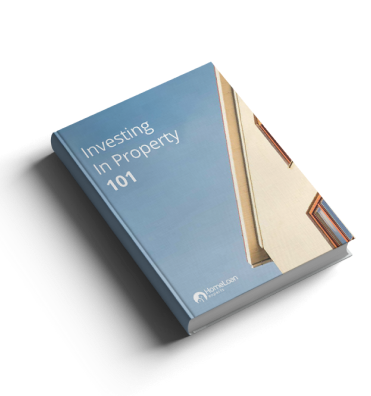As an investor, you can choose from a variety of properties to invest in. The three primary categories include residential properties, commercial properties, and vacant land. Each option comes with its own benefits and challenges. Residential properties are the most common, providing rental income and the potential for capital gains, although tenant-related issues can arise. Commercial properties deliver higher rental yields, but they require a larger upfront investment and come with risks such as higher tenant turnover. Vacant land investments are usually long-term and involve low maintenance costs, though they do not provide immediate income.
To succeed in property investment, it is essential to conduct thorough research, understand property market dynamics, and have a clear purpose for your investment. Additionally, recognising the type of investor you are, whether a flipper, landlord or commercial investor, will shape your approach and strategy.
Understanding these factors enables investors to make informed decisions that align with their financial goals.
Types of Property Investors
Flippers / Renovators
Flippers, also known as renovators, are looking to buy residential properties to renovate them and sell them for a profit within a short period. They take an aggressive investment approach and are strategic in their property assessments to avoid overvaluation and other costly mistakes.
Although their strategy, which is risky, focuses on building equity, the potential for returns is also higher.
However, as flipping is about buying and selling for a quick profit, if you can’t sell the property quickly, you might make less profit and even end up losing money.
Landlords / Passive Property Investors
Landlords are passive investors who minimise risk by committing to long-term strategies. They earn profit through rental income and tax offsets, and take advantage of capital growth by eventually selling or accessing equity.
Usually, people either aim to be passive income investors or just want the rent to help cover some of the mortgage to go for capital gains.
Commercial
Commercial investors target property trusts, security funds and syndicates and tend more towards commercial property. They take on a moderate amount of risk, as they invest in assets that generate income instead of searching for potential high-growth properties, which are often a greater risk because:
- Finding a property with potential for high growth in an area that generates good resale value or proper tenants can be a challenge.
Property Investment Guide 101
Learn the ins & outs of investing in properties from an experienced property investor and founder of Home Loan Experts, Otto Dargan.

When you know what kind of investor you are or want to be, you’re ready to examine the most popular types of investment properties:
What Are The Three Different Types of Property Investment?
Vacant Land
Buying vacant land is usually a passive long-term investment but requires much research and a good strategy. When looking to invest in vacant land, you need to look out for things such as:
- Location and zoning
- Size and shape
- Infrastructure
- Expenses such as property taxes, insurance and maintenance costs are relatively low
- Less competition, so you can get a good deal more easily
- Land prices can increase overnight
- You can develop the land yourself or sell it to a developer
- It’s tough to get approved for a home loan if you’re not developing the land
- There’s no rental income, so it could be challenging to make loan repayments
- It will detract from borrowing power for other investments
- Some lenders require you to build within a certain time frame
- Some lenders require proof that you can afford to build
- Generates higher yields than residential property
- Usually, tenants have to maintain the property, saving you maintenance costs. (it depends on the contract, but most leases are based on the tenants paying the outgoings)
- You can save thousands of dollars in tax deductions for depreciation
- Rental income is more stable, as leases are longer
- Commercial property lease agreements often contain a fixed annual rental increase, ranging from 3-4%
- Getting a loan is more complex than it is for residential property, as lenders view it as a higher-risk investment.
- A higher deposit is required
- Finding the right tenant can be difficult
- Loan terms may be shorter
- Interest rates may differ
- You can save thousands of dollars in tax deductions
- You can earn rental income
- You can earn money when the value of the property increases, as it usually does
- Loan to value ratios are higher
- Interest rates are often low compared to other types of lending
- Interest rates can fluctuate
- Tenants can be hard to find
- Some tenants are bad or difficult
- House prices fluctuate in the short term; they can stagnate or even fall
- People often hit a borrowing power wall eventually
- Houses are more expensive and harder to maintain than apartments
- Houses have more renovation potential, as they are typically larger
- Apartment buildings offer amenities such as gyms, parking spaces and swimming pools
- Strata is the downside of apartments
- Apartments can be riskier if new
- Apartments don’t have the same scarcity as houses
- Investors can save money on maintenance costs for several years by investing in new properties
- More government grants and tax concessions are available for the purchase of new properties
- Old properties often have a higher proportion of land value than new properties
- With new properties, you are paying mainly for the new building
- Old properties have a history on the market so they are easier to value properly.
- Old properties often have larger blocks (maybe granny flat potential)
- Buying off the plan allows the investor at least 1-2 years to prepare for repayments financially, as long as they can provide the 10% deposit (only in the cases where you are buying off plan that is due to settle a long way away)
- In a growth market, the value of these kinds of properties is likely to increase significantly between the payment of the deposit and the settlement date
- Sometimes if the value goes up too much, the developer changes the floor plan to disadvantage the buyers, this is why you often want to buy through a trusted developer (sunset clauses)
- There’s a higher risk that the builder might go bankrupt or not complete the project for another reason, costing you your deposit and your time
- It can be difficult to get approval for the loan if your situation changes between the time you sign the contract and the time the development is done
- Valuations can also drop over this time; many off the plan properties do not value up to what people paid for them
Benefits and disadvantages of investing in vacant land include:
Benefits Of Investing In Vacant Land
Disadvantages Of Investing In Vacant Land
Commercial Property
Buildings that house business operations, such as offices and factories, are called commercial property. With such investments, you could earn a much rental higher return than for most residential properties, but more risk is involved, too.
Generally residential properties are considered higher growth, however, the rental returns are where commercial stands out.
Here are some advantages and disadvantages of investing in commercial property:
Advantages Of Investing In Commercial Property
Disadvantages Of Investing In Commercial Property
Residential Property
Houses, apartments and townhomes are all residential property. It is by far the most common type of property investment. Here are some of the advantages and disadvantages of owning a residential property:
Advantages Of Investing In Residential Property
Disadvantages Of Investing In Residential Property
Different types of investment properties have various advantages and weaknesses. Here are some comparisons to consider:
House vs apartment
Read more about Houses vs Apartments.
New vs Old
Read more about New vs Old property.
Off-the-plan Properties
Read more about buying off-the-plan properties.
Looking To Get Your Investment Loans Approved? Home Loan Experts Is Here To Help
If you’re looking for the right investment home loan to start your portfolio, we can help you with our access to select lenders.
Call us on 1300 889 743 or enquire online to speak to one of our mortgage brokers, who can compare the home loans available from several lenders.
We recommend that you seek independent financial advice before borrowing money to invest.
